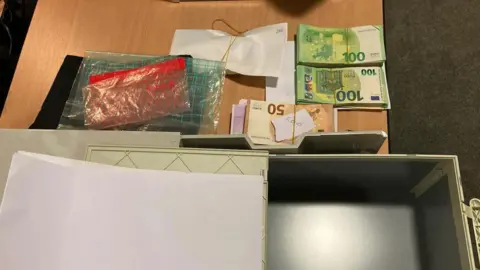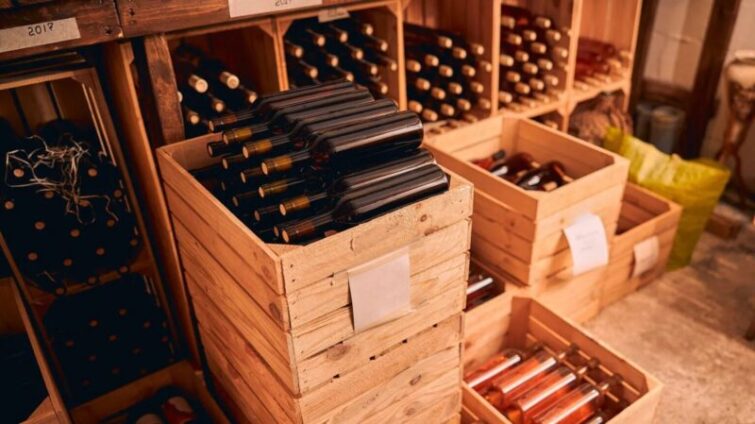French and Italian police say they have broken up an international fraud ring that was passing poor quality bottles of wine off as vintages worth up to €15,000 (£12,500) each.
Six people - including a Russian national who is the suspected ringleader - have been arrested in Paris, Turin and Milan.
They are alleged to have fabricated fake labels representing famous French vineyards, which were then sold at full market value through wine traders around the world.
The group earned €2m from the fraud, French prosecutors said.
A French national has been charged with organised fraud and money laundering.
The suspected ringleader, a 40-year-old Russian national, would also be charged, prosecutors said.
In a press release, Europol said items recovered during seizures included a “large amount of wine bottles from different counterfeited Grand Cru domains, wine stickers and wax products, ingredients to refill wine, technical machines to recap bottles, luxurious goods”, as well as electronic equipment valued at 1.4m euros and over 100,000 euros in cash.

Wine fraud has existed since wine was invented.
Until a few years ago, in France, it was at a fairly manageable level – a few dedicated experts counterfeiting labels and wax seals in order to pass basic wine off as something fancier.
But over the last decade, things have changed.
The prices fetched by the best grand crus on the world market are now so high – thousands of pounds a bottle – that it has become profitable to conduct the fraud in a much more organised way.
The centre of this kind of fraud is said to be Italy. That is because they have the wine know-how there: artisans who understand labelling and old bottles and corks; and also a criminal underworld that is prepared to invest.
Today, one wine auctioneer told me, the counterfeiting of old bottles and labels is so skilful that even the vineyards themselves are often unable to spot a fake.
And with some buyers then storing the wine for years, they may never find out it is a fake.
With international buyers, especially in China, willing to spend £20,000 or more on a top-quality bottle, the criminal temptation to create the perfect bottle - then fill it with rubbish - is for some too big to resist.
Latest Stories
-
Academic City unveils plastic recycling machine to address plastic pollution
16 mins -
German-based Kanzlsperger makes medical donation to WAFA
2 hours -
It could take over 100 years for Ghana and other African countries to become ‘developed’ – Report
2 hours -
AEC 2024 renews momentum to lift Africa out of poverty despite global shocks
2 hours -
Can RFK Jr make America’s diet healthy again?
2 hours -
Maiden Women in Chemical Sciences conference opens with a call for empowerment
5 hours -
We’ll reclaim all Groupe Nduom stolen assets – Nduom declares
5 hours -
Center for Learning and Childhood Development Director Dr Kwame Sakyi honoured at Ghana Philanthropy Awards
14 hours -
Asantehene receives 28 looted artefacts
14 hours -
CAF WCL 2024: Ghana’s Thelma Baffour wins title with TP Mazembe
15 hours -
Benjamin Boakye slams politicisation of energy sector issues and ECG’s inefficiencies
15 hours -
Erastus Asare Donkor and Dr Neta Parsram win big at 10th Mining Industry Awards
16 hours -
Government is “suppressing information” about power sector challenges – IES Director
16 hours -
Majority of our debts caused by forex shortfall – ECG Boss
16 hours -
Pan-African Savings and Loans supports Ghana Blind Union with boreholes
17 hours

